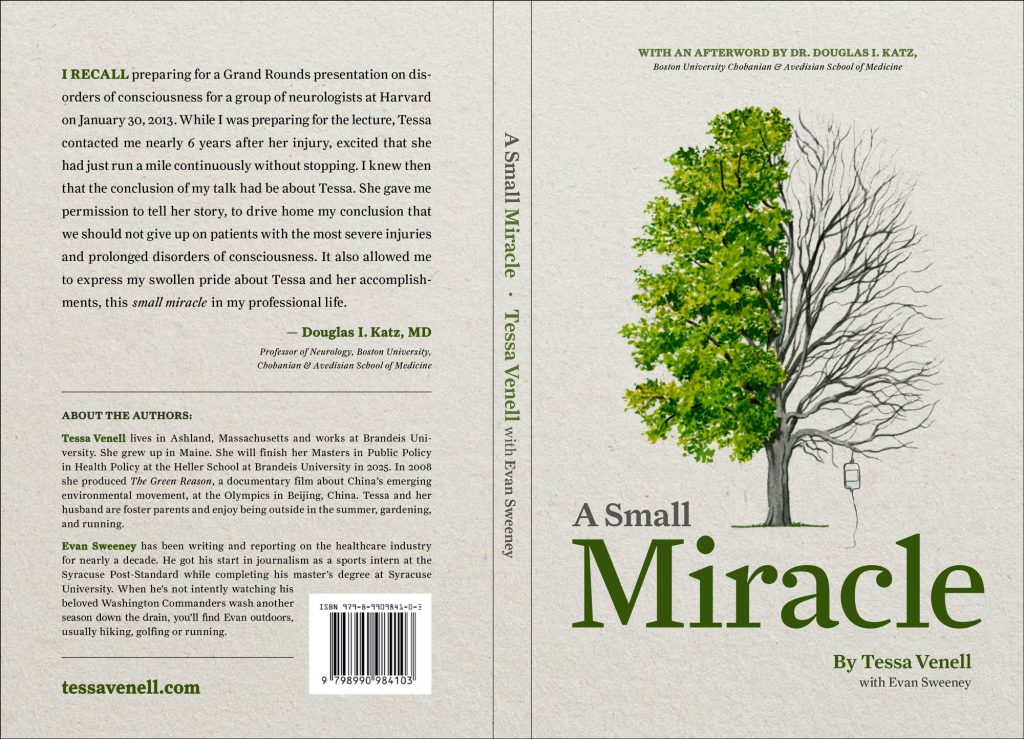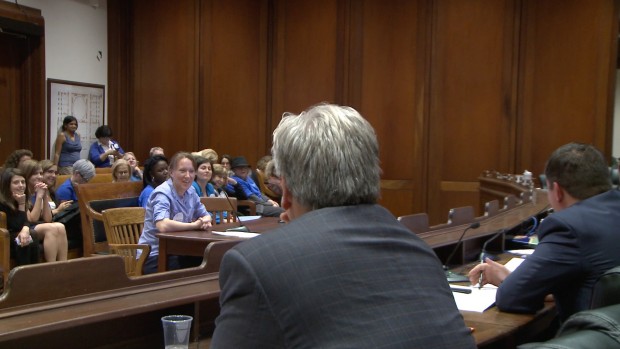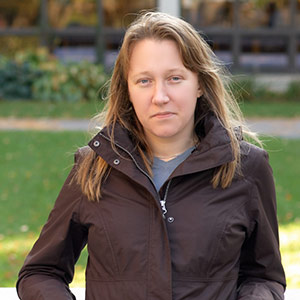I spoke at the Institute of Health Professions, an independent affiliate of Mass General Hospital that grants post graduate degrees, on Wednesday last week. I was invited to speak in the second year physical therapy lab session. It was super interesting and I got some great tips! I gave the instructor two goals that I’m working towards currently before class, and each of the two sessions worked with me on strategies to meet these goals. My goals were breathing while I’m swimming the breast stroke, which I tried last summer and have room for improvement, and trail running, which I’m continuing to practice and am getting better at. It’s so fun!
Students got information I provided the instructor about my relevant medical history and goals for moving forward. Because I’m not in physical therapy any more–and haven’t been for years and years–these student tips are great!
For breathing while I’m swimming, they got a big therapy ball and I balanced on my stomach with my head “above water”, then practiced the sequencing of moving my arms in the breast stroke and taking a breath and exhaling, they told me how to coordinate those movements, and then practiced and I’ll definitely feel more comfortable in the water next time. For trail running, I practiced shifting my weight by jumping from foot to foot.
Both groups gave me the Hi-Mat test, which is the test they have also always administered at the BU classes I speak at in the spring. I can’t “bound” from my affected leg, so I always miss points, and I was expecting that in the first IHP class, so I warned the students. In the second class they asked me to try, and demonstrated what a bound looks like, and gave me some instructions, and I did it! But I wasn’t able to do it twice is a row, which is how the test is assessed, so I’ll keep practicing!










